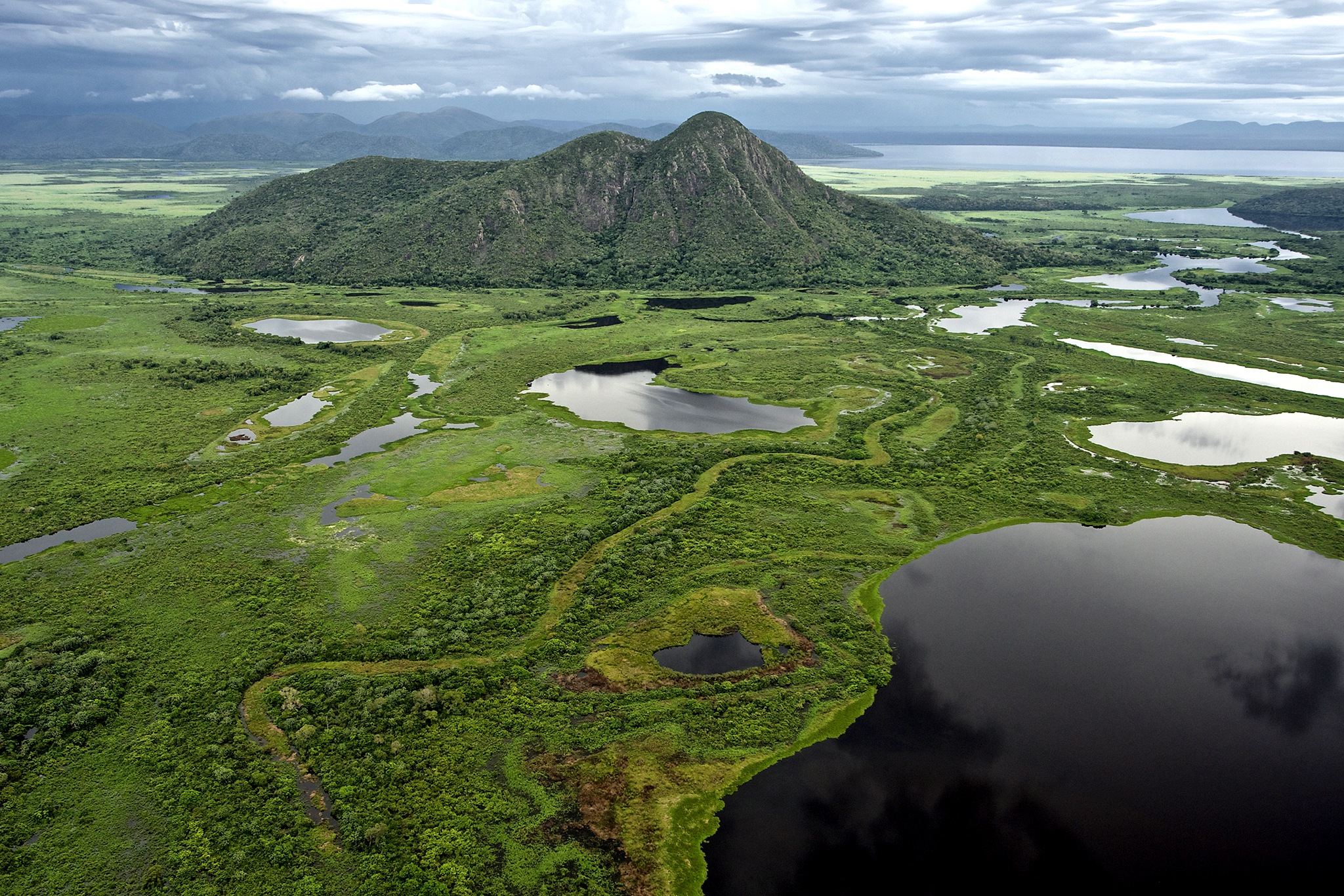RIO DE JANEIRO, BRAZIL – The Amazon is not the only Brazilian biome under threat. While the world’s largest rainforest registered a record number of fires in June – along with an increase in July and an accumulated growth of 25 percent in the semester – in July, the Pantanal wetlands experienced the largest number of fire outbreaks since Brazil’s National Institute for Space Research (INPE) started official records in 1998.
There were 1,684 fires recorded compared to 494 in the same month in 2019, a 3.4-fold increase. The Pantanal is the largest flooded plain in the world, and extends through Mato Grosso do Sul, Mato Grosso, and neighboring Paraguay and Bolivia. It is also home to thousands of species, some unique to the area.
The increased devastation of the biome is related to a severe drought in the first half this year, which favors the spread of flames: in the Amazon, it rained 50 percent less in the first months of the year. And this shortage of rainfall may be related to what is happening thousands of kilometers away. Despite the distance, experts point to a link between what happens in the world’s largest tropical forest and the Pantanal. “There are many studies in Brazil that show how the humidity rising from the Amazon supplies other regions in the country, in the Midwest, Southeast and South,” explains Marcio Astrini, executive secretary of the Climate Observatory.

This is due to a phenomenon known as ‘flying rivers’: “Due to trade winds [that form a kind of cycle] and the Andes mountain range, these flying rivers push the humidity of the forest transpiration down. When there is a drier season in the forest or an increase in deforestation, there is an imbalance between these flying rivers and the whole hydrological system involved,” explains Astrini. The consequence would be a reduction in rainfall and humidity in the Pantanal, which favors the spread of fires.
Alexandre Pereira, an environmental analyst at IBAMA (Brazilian Institute of the Environment and Renewable Natural Resources) who works in the organization’s firefighting program known as Prevfogo, is at the forefront of the fight against wildfires in the region. “This year is atypical with regard to climate issues, with below average rainfall and higher temperatures,” he says. He explains that one of the consequences of this is a change in the flood and ebb phases of the Pantanal: “This year we see a very low flood, one of the lowest since the 1970s, when the biome experienced a great drought. This creates “a perfect scenario for major forest fires”, he says.
The situation in the Amazon is also perceived as a factor influencing the devastation of the Pantanal, according to Pereira. ” Deforestation reflects on the dynamics here, as rainfall from flying rivers regulates the floods in this region,” he says. The analyst points out that there is a disruption of the rain pattern in the area, with a large amount of rainfall concentrated in a few days. “This large volume of rainfall within a short period of time does not allow the ground to absorb the water and feed the water table. So it flows,” he says.
Experts are unanimous in pointing out that virtually all the fires in the biome this year are of human origin, since fires caused by electrical discharges are discarded given the fact that no rain clouds have formed in recent months. So who is behind the burning? “Culturally in the Pantanal, like in 2019, the vast majority of them are caused by patch-burn grazing renewal on large rural properties,” explains André Siqueira, director-president of ECOA, a non-governmental organization focused on socio-environmental protection. He points out that there is an attempt by the government to impute the devastation to the riverine communities, which are more socially vulnerable, “as if it were possible that the subsistence farms are behind all these fires.” President Bolsonaro has even accused NGOs of the devastation of the Amazon late last year.
Altering laws
With a dramatic outlook for the Amazon and the Pantanal, and facing criticism even from major companies and banks for its environmental policy, on July 16th the government banned burning in both regions for up to 120 days. According to the text, signed by the Minister of Environment Ricardo Salles, “controlled patch-burns in areas outside the Legal Amazon and the Pantanal are authorized, when they are essential for agricultural operations, as long as previously authorized by the state environmental body.” The decree overrides a state law in Mato Grosso do Sul and Mato Grosso that already bans patch-burns in the states during this period.
Despite this step towards controlling the devastation of the Brazilian biomes, Salles tried to alter the target of reducing deforestation and illegal fires in early August. The government’s multi-year plan, valid until 2023, provided for a 90 percent reduction in devastation. After proposing to replace this goal with others that limited the reduction of fires to certain areas, the Minister signaled that he backed down from the plan, which was criticized by environmentalists and opposition parties. The controversy prompted Paulo Guedes’ staff to express its opinion on the matter: “The Ministry of Economy recalls that Brazil already has the target of reducing illegal deforestation by 100 percent by 2030, provided for in our NDC (Nationally Determined Contribution), which is maintained.” However, it is not yet clear whether there will be a reduction in the target for 2023.
Senator Fabiano Contarato (REDE-ES), chair of the Senate Environment Committee, used social media to criticize Salles’ stance. “The pledge to use the pandemic to ‘pass laws’ [a line Salles used at a cabinet meeting in reference to his wish to change environmental rules during the health emergency] is being fulfilled: Bolsonaro has handed over the forest assets to criminals, land grabbers, illegal prospectors and deforesters. The damage to the country will be irreversible!” he wrote.
Source: El País

